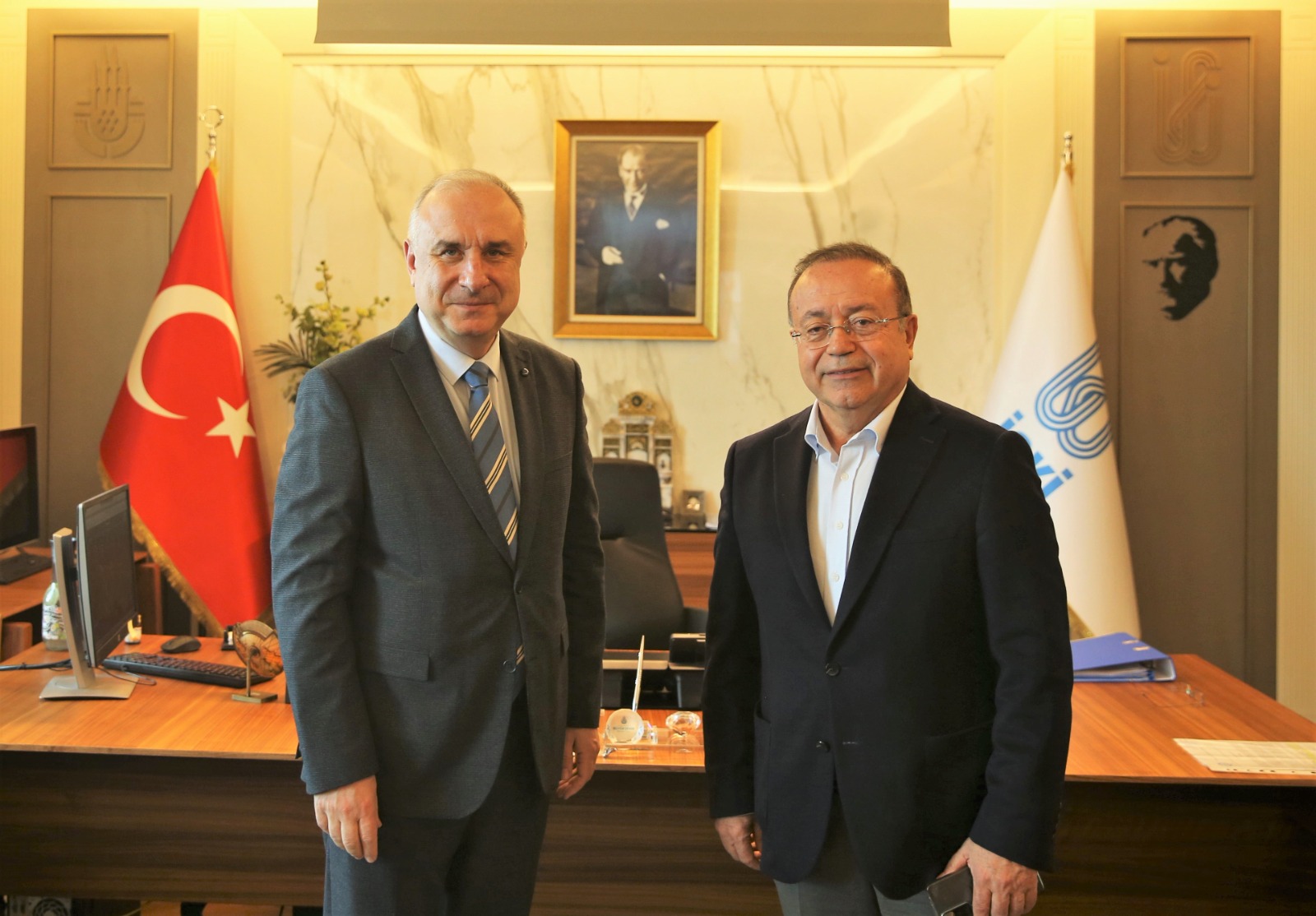
Goal 14: Conserve and sustainably use the oceans, seas and marine resources
SDG 14.2.1. Fresh-water ecosystems
Istanbul Okan University offers educational programs on freshwater ecosystems, covering topics such as water irrigation practices, water management, and conservation for local and national communities. These programs include initiatives aimed at promoting sustainable water use and raising awareness about the importance of protecting freshwater resources.

SDG 14.2.2. Sustainable fisheries
Istanbul Okan University offers educational programs and outreach initiatives for local and national communities on the sustainable management of fisheries, aquaculture, and tourism. These programs aim to promote sustainable practices, enhance resource management, and support the development of environmentally friendly approaches in these sectors. The university engages with community members, industry stakeholders, and students to raise awareness and provide expertise on sustainable management strategies.
SDG 14.2.3 Overfishing
Istanbul Okan University offers educational outreach activities for local and national communities to raise awareness about overfishing, illegal, unreported, and unregulated fishing, as well as destructive fishing practices. Through seminars, workshops, and collaborative projects, the university educates community members and stakeholders on sustainable fishing practices and the importance of protecting marine ecosystems. These initiatives aim to contribute to the long-term sustainability of local and national fishing industries.
Our Chairman of the Board, Prof. Dr. Ali Kahriman, Visited the General Directorate of ISKI

SDG 14.3.1. Conservation and sustainable utilisation of the oceans
Istanbul Okan University supports and organizes events aimed at promoting the conservation and sustainable utilization of oceans, seas, lakes, rivers, and marine resources. Through workshops, seminars, and collaborative projects, the university raises awareness and encourages responsible management practices to protect these vital ecosystems. These initiatives are part of the university’s commitment to sustainability and environmental stewardship.
SDG 14.3.2. Food from aquatic ecosystems
Istanbul Okan University has a policy to ensure that food on campus sourced from aquatic ecosystems is sustainably harvested. The university is committed to promoting responsible consumption by working with suppliers who follow sustainable fishing and aquaculture practices, ensuring that seafood offered on campus meets environmental and ethical standards.
SDG 14.3.3. SDG 14.3.3. Maintain ecosystems and their biodiversity (direct work)
SDG 14.3.4. Technologies towards aquatic ecosystem damage prevention (direct work)
SDG 14.4.1. Water discharge guidelines and standards
Istanbul Okan University has water quality standards and guidelines for water discharges to uphold water quality and protect ecosystems, wildlife, and human health and welfare. The university ensures that its water management practices comply with these standards, aiming to minimize environmental impact and contribute to the sustainability of local water resources.
SDG 14.4.2. Action plan to reducing plastic waste
Istanbul Okan University has an action plan in place to reduce plastic waste on campus. The plan includes initiatives such as promoting the use of reusable items, reducing single-use plastics, implementing recycling programs, and raising awareness about plastic waste reduction among students and staff. This approach supports the university’s commitment to sustainability and environmental responsibility.
SDG 14.4.3. Reducing marine pollution (policy)
Istanbul Okan University has a policy focused on preventing and reducing marine pollution, particularly from land-based activities. The university implements sustainable waste management practices, promotes environmental awareness, and works to minimize pollutants from campus operations that could impact marine environments. This policy reflects the university’s dedication to protecting aquatic ecosystems and contributing to the overall health of marine resources
SDG 14.5.1. Minimizing alteration of aquatic ecosystems (plan)
Istanbul Okan University has a plan in place to minimize physical, chemical, and biological alterations of related aquatic ecosystems. The university focuses on sustainable practices in its operations, research, and community engagement to protect and restore aquatic environments. This plan includes monitoring ecosystem health, promoting conservation efforts, and collaborating with local stakeholders to ensure the integrity of these vital ecosystems.
SDG 14.5.2. Monitoring the health of aquatic ecosystems
Istanbul Okan University monitors the health of aquatic ecosystems as part of its commitment to environmental sustainability. The university conducts research and assessments to evaluate the status of local water bodies and aquatic habitats. This monitoring helps inform conservation efforts and contributes to the understanding of ecosystem dynamics, ensuring that appropriate measures are taken to protect and restore these vital resources.
SDG 14.5.3. Programmes towards good aquatic stewardship practices
Istanbul Okan University develops and supports programs and incentives that encourage and maintain good aquatic stewardship practices. The university engages students, faculty, and the local community through educational initiatives, workshops, and outreach activities aimed at promoting responsible management of aquatic resources. These efforts are designed to foster a culture of sustainability and enhance the understanding of the importance of protecting aquatic ecosystems.
SDG 14.5.4. Collaboration for shared aquatic ecosystems
Istanbul Okan University collaborates with the local community through partnerships to maintain shared aquatic ecosystems. The university engages in joint projects, research initiatives, and community outreach programs that aim to protect and enhance local water resources. These collaborations emphasize the importance of collective action in sustaining aquatic ecosystems and promote awareness of environmental stewardship among community members.
SDG 14.5.5. Watershed management strategy
Istanbul Okan University has implemented a watershed management strategy that considers the location-specific diversity of aquatic species. This strategy involves research and conservation efforts tailored to the unique characteristics of local aquatic ecosystems, promoting sustainable management practices that support biodiversity and ecosystem health. The university collaborates with local stakeholders to ensure effective implementation and monitoring of these initiatives.